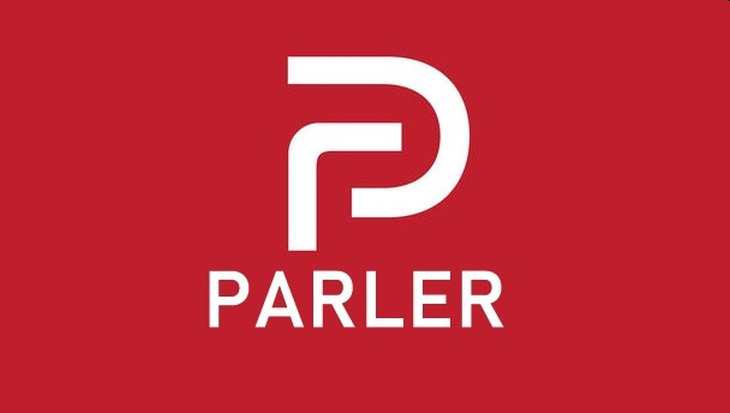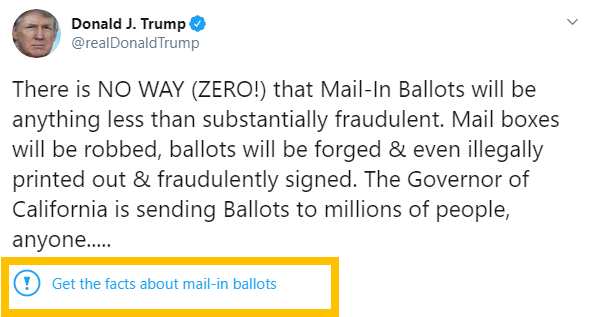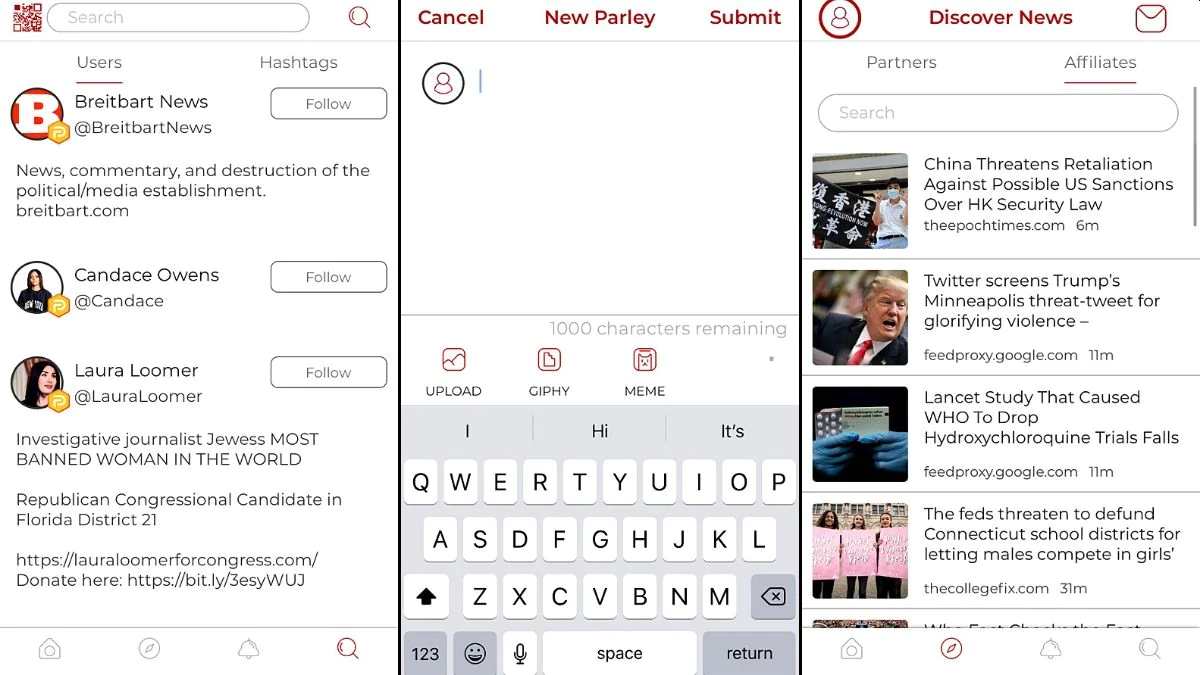Parler is the best alternative to Twitter for those who want to fight big tech censorship and social media freedom

If you’ve been following the news lately, on Tuesday, Twitter censored and added a fact-checking label to a tweet from President Trump. This is the first time the social media platform has added such a label to the president’s tweets. In a novel approach to challenging the President, Twitter said President Trump had made false claims about mail-in ballots, urging people to “get the facts.” In response, the President signed an executive order to regulate social media.
Twitter’s action immediately generated reactions and concerns from Twitter users with many accusing the company of becoming the arbiter of truth. To make matter worse, Twitter cited CNN, a news outlet well-known for lying about Covington Catholic teenager, Nick Sandmann. He gained national attention over a viral video made during an encounter with a Native American activist on the steps of the Lincoln Memorial in Washington last year. Sandmann and his family later sued CNN and NBC for $275 million for their reporting. CNN later settled the lawsuit out of court for an undisclosed amount of money, according to the information on its own website.
However, the decision may end up costing Twitter and other big tech companies like Facebook and YouTube the freedom and legal protection they have enjoyed as a forum and “user-generated content posting” platforms. The protection comes from Section 230 of the Communications Decency Act of 1996, which states that “No interactive computer services shall be treated as the publisher or speaker of any information provided by another information content provider.” In addition, many conservatives have accused Twitter of repeatedly censoring the voices in a clear violation of the First Amendment and freedom of expression.
Below is the original tweet that sparked the outrage.
There is NO WAY (ZERO!) that Mail-In Ballots will be anything less than substantially fraudulent. Mail boxes will be robbed, ballots will be forged & even illegally printed out & fraudulently signed. The Governor of California is sending Ballots to millions of people, anyone…..
— Donald J. Trump (@realDonaldTrump) May 26, 2020
Twitter added the label shown below that says, “Get the facts about mail-in ballots.” The label also leads to a page saying the president’s tweets are not true.

The statement on the page reads:
“On Tuesday, President Trump made a series of claims about potential voter fraud after California Governor Gavin Newsom announced an effort to expand mail-in voting in California during the COVID-19 pandemic. These claims are unsubstantiated, according to CNN, Washington Post and others. Experts say mail-in ballots are very rarely linked to voter fraud.”
Below is a follow-up tweet from the Twitter Safety department.
https://twitter.com/TwitterSafety/status/1265838823663075341
So, the question everyone has been asking is, if Twitter can censor the President of the United States, what stops the platform from censoring tweets of ordinary Americans? There are two major solutions to this problem. Hold Twitter and other big tech companies accountable for censoring free speech. Congress could also eliminate Section 230 immunity for these companies, which will then make it possible for people to legally sue big techs for denying them their First Amendment rights.
The other solution is innovation. As some of you probably remember, AltaVista was the most popular web search engine in the heydays of the Internet. Established in 1995, AltaVista became one of the most-used early search engines before losing ground to Google, which was launched 3 years later.
Today, Twitter remains the most popular microblogging platform. But that does not mean it cannot be disrupted with a better platform, especially if it continues with its biases and censorship. Now, there is a new kid on the block. Parler is a Twitter-like social media microblogging platform that dubbed itself as a non-biased free speech-driven entity.
Parler said its goal is to offer the world a platform that protects user’s rights, supports publishers and builds online communities. Parler aims to empower users to control their social experience. Users can be responsible to engage content as they see fit. Parley has been gaining popularity among conservative users. Parler currently hosts about 100,00 users. Given the current standoff between Twitter and President Trump, some conservative influencers are suggesting the president consider create an account on Parler.
Parler (from the French word for “to speak”) was founded by CEO John Matze in 2018. The social platform is regarded as one of the best alternatives to Twitter. It marketed as an unbiased, free-speech social media platform focused on protecting users’ rights. In accordance with its free speech policy, Parler adopts a laissez-faire approach to offensive speech, citing the FCC’s definition of obscenity to define the threshold for acceptable conduct.
According to the message on its website, Parler describes itself as: “an unbiased social media focused on real user experiences and engagement. Our content is moderated based on the FCC and the Supreme court of the United States which enables free expression without violence and a lack of censorship. Parler never shares your personal data.”

Late yesterday, Dan Bongino, an influencer conservative, and a former secret service agent said: “ESCAPE the Twitter overlords and join the fight for social media freedom. Join us on Parler today.”
https://twitter.com/dbongino/status/1266532589457870848
Another Twitter user posted,
“Due to Twitter’s #censorship, we’re all moving over to #Parler,” said a user on Twitter. “Good morning Patriots. I highly recommend we start migrating to other social media platforms. I am already seeing Breitbart, Dan Bongino and some Trump family members there [Parler].”
Much like Twitter, Parler allows users to share and express views in up to 1,000 characters (unlike the 280 characters on Twitter). Users on the platform can ‘parley’ through ‘Echo,’ ‘Share,’ ‘Vote’ and, ‘Comment’ similar to Twitter’s ‘Retweet’, ‘Comment,’ and ‘Like’ features. Users also have the option to send private messages to other users on the platform. Parley still has a long way to go and in no way poses any threat to Twitter. Parley’s current user base is a drop in a bucket considering Twitter has 330 million monthly active users and 145 million daily active users on Twitter.

